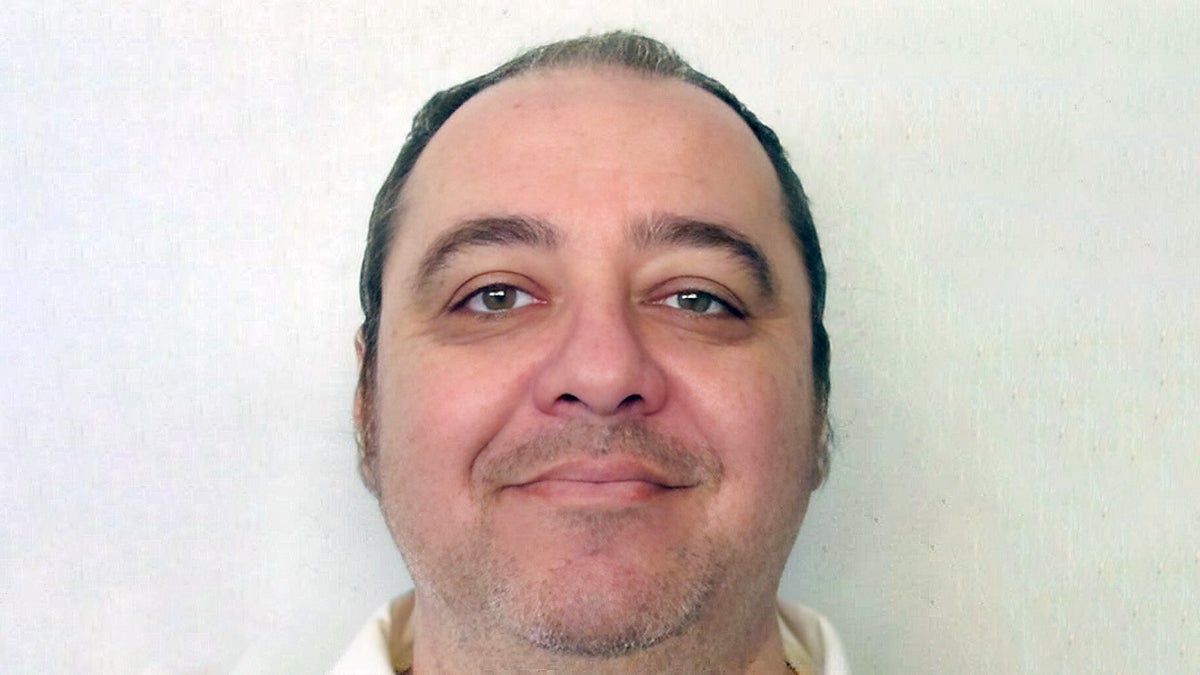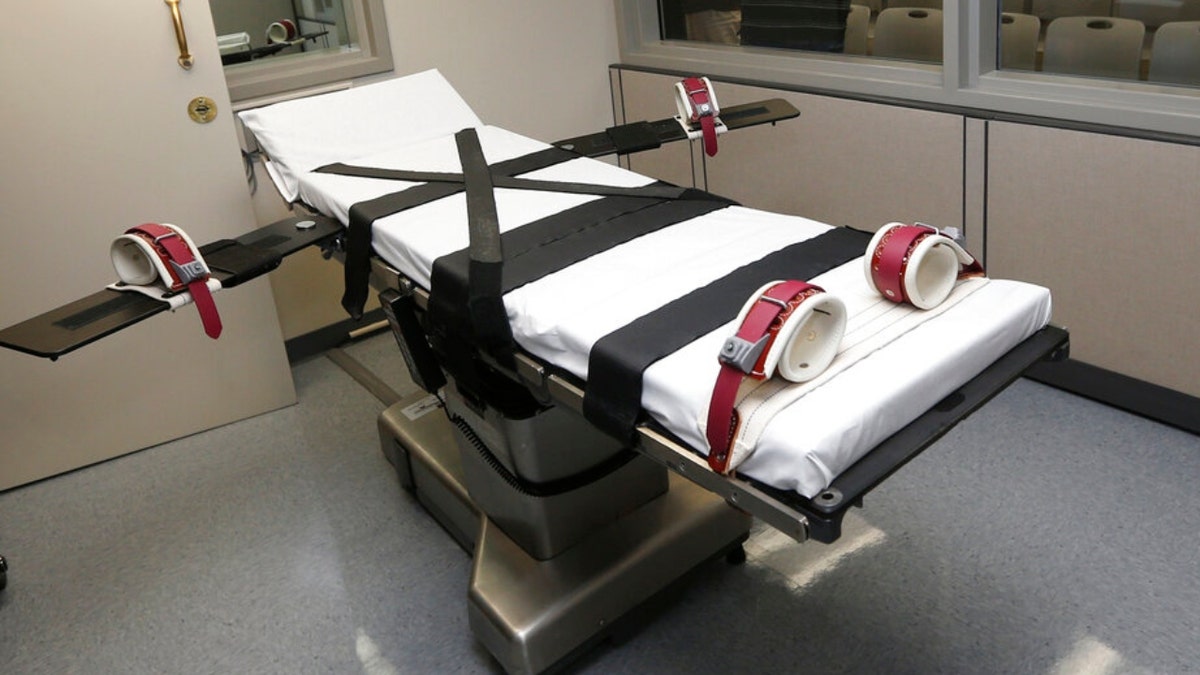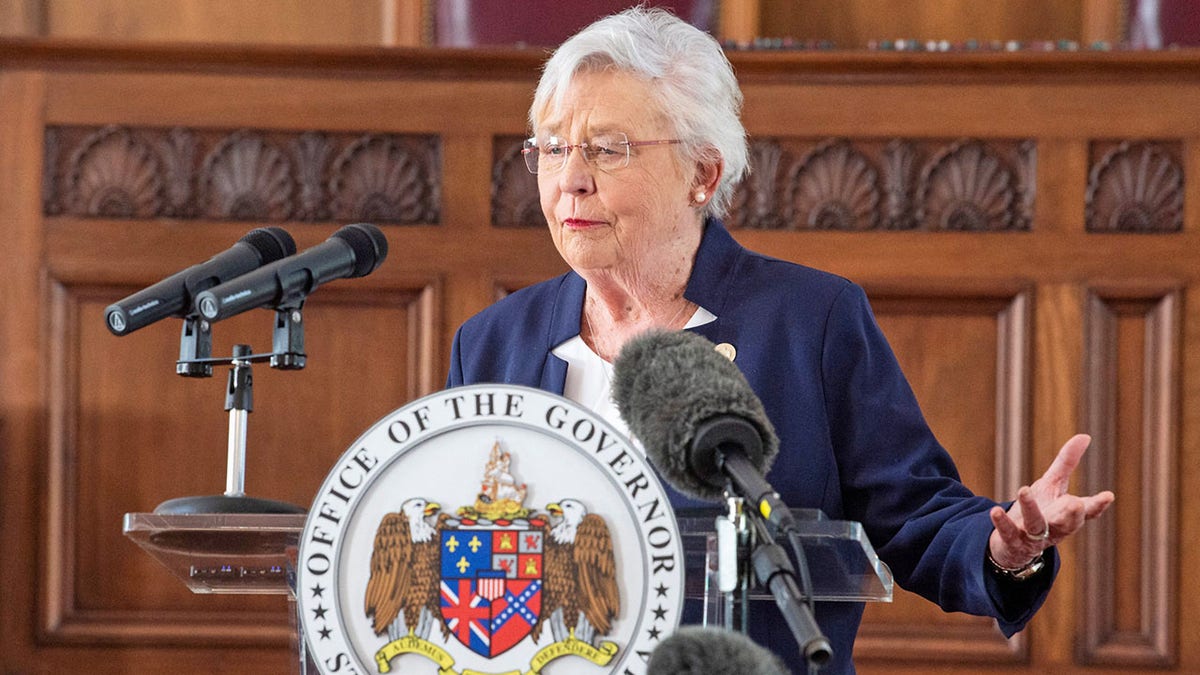Fox News Flash top headlines for November 19
Fox News Flash top headlines are here. Check out what's clicking on Foxnews.com.
Alabama's recent inability to conduct lethal injections is unprecedented nationwide, according to a group that tracks capital punishment.
The Death Penalty Information Center told The Associated Press on Friday that no other state has had to stop an execution in progress since 2017.
The execution of 57-year-old death row inmate Kenneth Eugene Smith was called off ahead of a midnight deadline on Thursday because state officials couldn't find a suitable vein.
It was the second such instance of being unable to kill an inmate in the past two months for the state, and the third since 2018.
EXECUTION OF ALABAMA MAN WHO KILLED PREACHER'S WIFE HALTED FOR BIZARRE REASON

This undated photo provided by Alabama Department of Corrections shows inmate Kenneth Eugene Smith, who was convicted in a 1988 murder-for-hire slaying of a preacher’s wife. Smith, 57, is scheduled to receive a lethal injection at a south Alabama prison on Thursday, Nov. 17, 2022. ((Alabama Department of Corrections via AP).)
An execution was completed in July following a three-hour delay caused partially by the same problem with starting an IV line.
"I think Alabama clearly has some explaining to do, but also some reflection to do about what is going wrong in its execution process," Ngozi Ndulue, the deputy director of the center, said. "The question is whether Alabama is going to take that seriously."
However, the Alabama Department of Corrections disputed that the cancelation was a reflection of problems, blaming a late court action for a "short timeframe to complete it protocol."
Officials said that they called off the execution for the night after they were unable to get it underway within the 100-minute window between the U.S. Supreme Court's clearing the way for it to begin at about 10:20 p.m. and the death warrant's expiration.
The court had lifted a stay earlier in the evening by the 11th U.S Circuit Court of Appeals, but the state decided an hour later that the injection would not happen.

FILE - This photo shows the gurney in the execution chamber at the Oklahoma State Penitentiary in McAlester, Oct. 9, 2014. (AP Photo/Sue Ogrocki, File)
"We have no concerns about the state’s ability to carry out future lethal injection procedures," the Alabama Department of Corrections said in an emailed statement to the outlet, saying it would continue to review its processes to assess and identify areas of improvement.
Fox News Digital's request for comment from the department was not immediately returned.
Alabama Gov. Kay Ivey blamed Smith’s last-minute appeals for the execution not going forward as scheduled.
"Kenneth Eugene Smith chose $1,000 over the life of Elizabeth Dorlene Sennett, and he was guilty, no question about it. Some three decades ago, a promise was made to Elizabeth’s family that justice would be served through a lawfully imposed death sentence," she said. "Although that justice could not be carried out tonight because of last-minute legal attempts to delay or cancel the execution, attempting it was the right thing to do."
Smith's layers say they believe he may have been strapped to a gurney four hours, even though final appeals were still underway after visiting with him.
"Mr. Smith no doubt has injuries from the attempted execution — and certainly physical and testimonial evidence that needs to be preserved — that can and should be photographed and/or filmed," lawyers for Smith wrote.

Gov. Kay Ivey takes questions from reporters during a press conference at the Alabama State Capitol Building in Montgomery, Ala., on Wednesday, April 7, 2021. (Reuters)
The state must go back to court to seek a new execution date.
He was returned to Holman Prison after surviving the attempt.
Smith was convicted in the 1998 murder-for-hire killing of preacher's wife Elizabeth Sennett.
Prosecutors said the death row inmate was one of two men who were each paid $1,000 to kill Elizabeth Sennett on behalf of her husband, Charles Sennet Sr., who wanted to collect on insurance. Sennett was found dead in her Colbert County home on March 18, 1988, and the coroner testified that the 45-year-old had been stabbed eight times in the chest and once on each side of the neck.
CLICK HERE TO GET THE FOX NEWS APP
Her husband killed himself when the murder investigation focused on him as a suspect.
John Forrest Parker, the other man convicted in the slaying, was executed in 2010.
The Associated Press contributed to this report.



